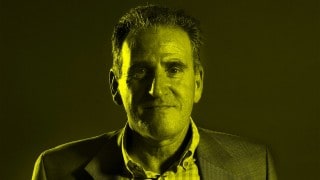When the history of Europe’s waning pre-eminence and the rise of Asia’s new superpowers is written, the German G8 summit that has just ended in the Baltic seaside town of Heiligendamm will be regarded as a momentous turning point. It will also be seen as the moment when the Western powers decided to bury their hatchets over Kyoto and start exerting pressure on their Asian challengers.
The failure of Germany and its European Union partners to push through their key goals stands for a diplomatic defeat that epitomizes Europe’s shrinking influence in international climate negotiations. German Chancellor Angela Merkel had set three ambitious climate goals for the G8 summit. She wanted to sway the United States and other G8 countries to commit to cutting emissions by 50% by 2050. She also wanted them to limit the world’s temperature rise to 2C and to increase fuel efficiency by 20%. In the end, not one these targets was accepted by her non-EU partners.
German and European diplomats were taken aback during the negotiations inthe run-up to the summit; not only the United States, but Japan, Canada and even Russia opposed Europe’s concept of unilateral G8 targets. Germany’s original plan, to push for ambitious goals with the aim of isolating President George W. Bush, fell short as even China and India came out against the idea of mandatory emission caps.
But nothing caused Angela Merkel bigger upset and sheer dismay than the refusal of Nancy Pelosi, the Democratic Speaker of the U.S. House of Representatives, to back Germany’s position when she visited Berlin just days before the summit. No words of support from Al Gore either. Instead, the U.S. Democrats showed Merkel and the EU the cold shoulder - implicitly at least.
The snub demolished almost overnight the commonly held assumption that the impasse over a post-Kyoto deal would be overcome with a new president in the White House. For those who still don’t get Ms. Pelosi’s and Mr. Gore’s veiled message, Tony Blair made it perfectly plain why a Democratic U.S. president would not yield either: “Whoever U.S. president is in office, they will not agree to a climate-change deal which doesn’t have China part of it.”
Which is why the G8 has now kicked the ball into China’s court. The actual deal agreed to at the G8 climate summit is broadly based on the U.S.- and Canadian-backed climate plan presented by Japanese Prime Minister Shinzo Abe. In early May, Abe officially announced that he had obtained Mr. Bush’s support for his new climate policy. At the G8 summit, they would seek an international consensus for an action plan proposing global steps aimed at halving greenhouse-gas emissions by 2050 from current levels.
One catch: The U.S.-Japanese plan, now adopted by the G8, also agreed that any effective international framework on climate change must include China, India and other major greenhouse-gas emitters from the developing world. In other words, G8 countries are willing “to consider” reducing emissions in 2050 by 50% so long as all major emitters join in that target. Crucially, by offering a deal to cut global CO2 emissions by half, not just those of a handful of richer nations, the G8 has shifted international pressure away from the West and on to China and India.
No sooner had Angela Merkel announced the G8 “breakthrough” on Thursday afternoon than Mr. Bush went on the offensive: Just before his meeting with the Indian Prime Minister, he insisted that efforts to reduce greenhouse-gas emissions would not succeed until India and China are involved.
“Nothing is going to happen in terms of substantial reduction unless China and India participate,” Mr. Bush said, adding “if we want India and China at the table, it is important that we give them the opportunity to set an international goal.”
But more than that. On the back of his own climate initiative and the G8 agreement, Mr. Bush has now taken on the role of a suave intermediary between Europe and Asia. To the dismay of European diplomats, Mr. Bush has recast the United States as a “green” bridge-builder between Europe on the one hand and developing countries like India and China on the other - all in the name of ensuring global reduction of greenhouse-gas emissions.
The G8 summit of Heiligendamm has brought to an end the era when European leaders would wag their fingers at the United States and demand action over climate change. Now, Mr. Bush has decided to don Europe’s traditional role as a green champion. Now, it’s the United States that is demanding more action on climate change - from China, India and other major emitters.
At Heiligendamm, Mr. Bush has killed two birds with one stone. Firstly, he has removed much of the mounting international pressure and has shifted it instead on to China and India. Moreover, he has now seized the initiative on climate politics and is setting the agenda for international negotiations.
In view of Europe’s political isolation, Angela Merkel had no viable option other than to back down. By agreeing to the G8 “compromise,” informed as it is by the new U.S. and Japanese climate plans, the EU has effectively given up on its traditional support for a unilateral, Kyoto-style treaty that excludes the developing world. Judging by the euphoric words of praise for the G8 agreement, European leaders seem to confirm that they are surreptitiously delighted about their own “defeat.” They knew full well that it was unavoidable if Europe wanted to rejoin the Western climate alliance.
The problems faced by India and China are of a different kind altogether.
Given their explosive growth, Chinese and Indian leaders have been resisting setting mandatory targets for emissions that are unlikely to be curtailed with current technology. It cannot be emphasized enough that this refusal to accept fixed caps does not hinge on the U.S. position. After all, China is not prepared to move - even if the United States were to move first. China hasn’t put any such conditions on its climate policy because - in the absence of alternative energy technologies - it simply cannot survive any caps, which would inevitably stifle economic growth, thus putting the country at risk of social unrest and upheaval.
All the same, now that Mr. Bush has gone green, the onus is on the leaders of Asia’s powerhouses to respond. Should they reject Bush’s new climate initiative, now backed up by the G8, they - not the Western world - will get the blame for the obstruction of progress. However, should they eventually concede to international pressure, China’s and India’s industries will also be subject to a cap on emissions, far off in the future, but still one that is not feasible under current or foreseeable technologies.
For the time being, the climate agreement by the G8 summit creates an intractable impasse that is almost insurmountable in the short term. For too long, the climate-change debate has been overheated. At times, it looked almost unstoppable, like a runaway train in the movies. Like in the movies, the runaway train has crashed into the buffers of the hard reality of economic and political constraints. The lack of a practical short-term solution to the climate impasse means that policymakers should begin to tone down the hype and prepare citizens for the long haul. The time has come for cooler heads.
Benny Peiser is the editor of CCNet, an international science-policy network.
http://www.canada.com/nationalpost/financialpost/story.html?id=439bd9a8-7627-4f05-8bd8-3ff0974bdee9&k=22409









